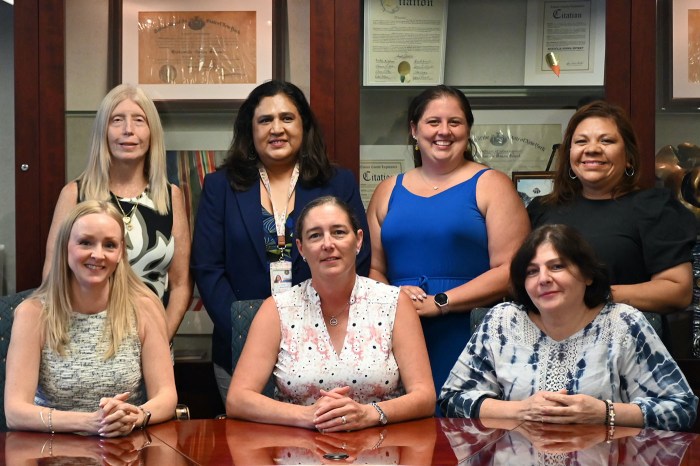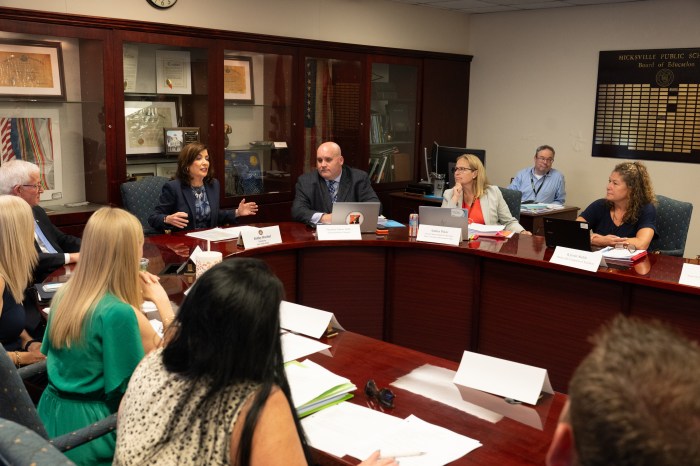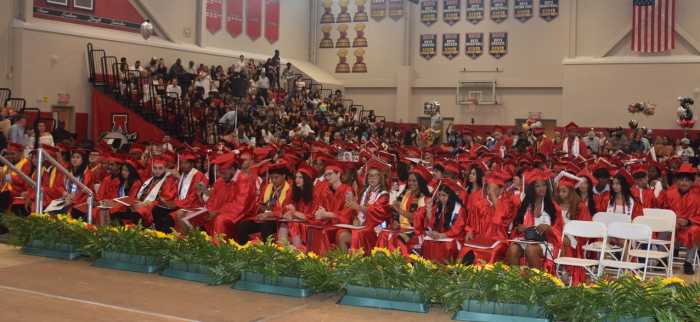President of L&L Paints Working
Toward Cure for Rare Disease
Four years ago when their son, Matthew, underwent a kidney biopsy, Michael and Dana Levine knew exactly what they didn’t want to hear when their child’s test results were finalized: FSGS.
FSGS, or Focal Segmental Glomerulosclerosis, is the second-leading cause of kidney failure in children. The disease causes a filtering malfunction in the kidney where beneficial proteins are irregularly spilled into the urine and unable to be delivered to the body.
“It was complete and utter devastation when you find out a 3-year-old child has a very rare kidney disease that has no known cure … when we heard those four letters my wife and I wanted to crawl into a hole and not come back,” said Michael Levine.
Levine, the president of L&L Paints in Hicksville, resides in Melville and has been working toward raising awareness and finding a cure for FSGS ever since learning of his son’s diagnosis.
“We knew if it was any kidney disease, those four letters were the worst because we knew it was a disease that they have no knowledge of, they’re so far behind [with research] and it’s impossible to deal with because there’s no cure whatsoever,” he said.
“When we met the social workers after the diagnosis … they basically walked up to us, and I’ll never forget it, and said ‘Your lives have been changed forever’,” Levine said.
Matthew, now 7, recently had an opportunity to meet with former NBA great Alonzo Mourning at a charity golf outing for the disease. Mourning was diagnosed with FSGS in 2000 and in 2003 he received a kidney transplant. In 2004, he was able to return to playing basketball and eventually win a championship with the Miami Heat. FSGS is five times more prevalent in African Americans, according to Levine.
“I think it was pretty fascinating for [Matthew], you see a man of that size and that magnitude, it gives my son some hope. Alonzo is lucky in the respect that his kidney transplant has held up … there’s a gentleman on Long Island who has had four kidney transplants and he has no white blood cells left in his body.
“It was a very good meeting for my son, I told him he used to be one of the better basketball players in the world and that he does a lot of charity work around the world and he happens to be a NephCure ambassador … it was a win-win situation,” Levine said.
Michael and Dana Levine are also very involved with the NephCure Foundation, and through various events and social networking, they hope the disease can one day be eradicated completely.
“I joined the NephCure board immediately after the diagnosis … I have basically dedicated the last four years of my life and will probably dedicate the next 25 years of my life.
“I decided to join the board to try and help bring awareness and exposure to a disease and a foundation that has very little right now in hopes that the money and the research will follow and I hope to create a miracle for my son and all the other children afflicted with this silent kidney-destroying disease that is quickly becoming an epidemic,” said Michael.
On Sept. 10 at Citi Field, the Levine family will participate in the NephCure/ Ed Hearn Night. Hearn was a member of the ’86 World Championship Mets team. Tickets for the event can be purchased at www.savingkidneys.org.
“The Mets, as an organization, have stepped up to help us. Ed Hearn has had this disease for almost 15 to 20 years; he’s had three kidney transplants and two bouts with cancer. Jim Duquette, the former general manager of the Mets, his daughter is battling FSGS and she’s the same age as Matthew,” Michael said.
A percentage of all tickets sold will benefit the NephCure Foundation and tables will be set up with handouts to help spread the word about FSGS and according to Michael, “How bad it is on the children.”
Matthew Levine is given a barrage of medicines each day to combat severe body pains. His father is cognizant of the disease and its complications, but also is aware of the efforts many have made to find a cure.
“Last week there was a symposium in Manhattan and there were 1,400 lead pediatric nephrologists from around the world there … 500 doctors showed up just to bring awareness and exposure to all the doctors around the world that this foundation exists,” Michael said.
In addition to fundraising for research and events throughout the country, The NephCure Foundation devotes much of its efforts to identifying patient families.
“We do family meetings around the country, we do surveys, we try and bring the doctors to the patients and the patients to the doctors, you name it we do anything.
“Because of the way medicine is these days, it’s very hard for us to get to the patients and the patients to get to us. Doctors know the numbers are growing in leaps and bounds and some say kidney disease of this nature could be the next epidemic of our generation,” said Michael.
FSGS has continued to increase tremendously every year and it has become even harder to find a cure and treatment for this kidney disease. Of the drugs that are available to the United States, only eight of them treat kidney disease FSGS, according to doctors at Harvard Medical School.
“Twenty years ago they thought there were only 20 cases of FSGS in this country, now doctors think there’s somewhere between 150,000 and 250,000 … that’s unjustified, just a guess [because] there are 8,000 new cases a year,” Michael said.
The NephCure Foundation is the only organization solely committed to seeking a cause and cure for Nephrotic Syndrome and FSGS. NephCure aims to help science unlock the biological mechanisms that cause these conditions and ultimately find a way to cure and prevent them.
“I want something more important than money, I want to create a miracle for these children, I think the only way to do that is to bring more awareness and exposure to the disease, to the foundation, to the website … get it out on Facebook and Twitter so that people understand the magnitude of the disease,” Michael said.
Further information can be obtained at www.nephcure.org or by contacting Miriam Long at mlong@nephcure.org or (610) 540-0186, ext. 10.


































